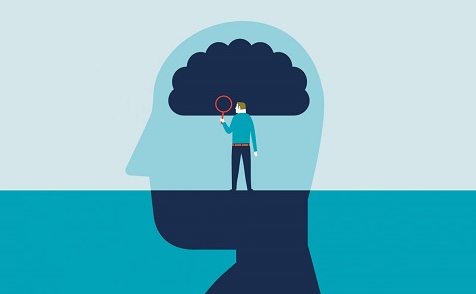Schizophrenia Leads to Frequent Marijuana Use, Not the Other Way Around
A new study published in late August in the scientific journal Nature Neuroscience claims that marijuana use may be a characteristic behavior of people with schizophrenia, rather than a cause of the disorder. The authors note that, despite years of research, science has not established a strong link between frequent marijuana use and the development of schizophrenia. Instead, practical observations suggest that frequent marijuana use is more common among people already suffering from acute forms of this psychological disorder.
“A significant body of evidence indicates that people experiencing typical symptoms of schizophrenia begin using psychoactive substances, including marijuana, as a way to manage and self-medicate their condition,” the authors state. In their research, the authors reviewed more than 80 previous studies on the relationship between schizophrenia and marijuana to identify common patterns among different patient populations worldwide. In addition to behavioral patterns, the researchers also examined the genetic predisposition of various ethnic groups to the disease.
While the scientific community has long believed that marijuana use can trigger symptoms of schizophrenia in some genetically predisposed individuals, no clear link has been found between marijuana use and the onset of the disease.
Previous Data on Marijuana and Schizophrenia
The conclusions of the new study are based on genetic tests of more than 184,000 people worldwide, including 22,000 volunteers who are users of the genealogy website 23andMe. The project was coordinated and sponsored by the International Cannabis Consortium, whose main goal is to identify genome variants that may increase the risk of various diseases due to marijuana use.
“Previous studies agree that certain gene variations can stimulate the development of schizophrenia symptoms under the influence of phytocannabinoids,” the authors note. Overall, none of the previous studies found a direct link between marijuana use and the development of schizophrenia. Only a few studies suggest that some genome variations may make individuals more susceptible to developing symptoms under the influence of cannabinoids. Marijuana use is considered most dangerous for adolescents, as early onset of schizophrenia can lead to a more severe course of the disease.
New Findings
The latest cross-analysis of various studies on genetic correlations in cases of schizophrenia symptoms supports the idea that cannabinoids can trigger latent forms of schizophrenia. However, analysis of patients with different forms of the disorder shows that after symptoms appear, people begin to use significantly more marijuana and other psychoactive substances, such as alcohol, to suppress them.
Why do people with schizophrenia turn to marijuana? The study shows that marijuana has a sedative effect, reducing neural activity in certain regions of the brain. “Simply put, patients begin using marijuana and other recreational substances when early symptoms appear, such as chronic stress and increased nervous excitability,” the study states. “This kind of self-medication has a noticeable sedative effect on the brain, which eventually becomes a habitual behavior pattern, persisting even as the disease progresses.”
Other Interesting Observations
Analyzing a large amount of data on different marijuana users and patients with schizophrenia, the authors noticed some interesting characteristics common among regular marijuana users. Scientists found a positive correlation between frequent marijuana use and a high tendency to take risks, openness to new experiences, higher levels of education and erudition, and higher family income.
To explain these patterns, the authors propose several theories. Since users represent a social group with higher income and education, it can be assumed that, at least in the US and Europe, the average marijuana user is not from the working class or ethnic minority communities, but from middle- or upper-class families, which explains the means for regular marijuana use. Similarly, openness to new experiences, risk-taking, and erudition can be explained by the typical marijuana user being a young member of the middle class.
Caveat Emptor
Of course, the study published in Nature Neuroscience does not claim that marijuana cannot be linked to the risk of developing schizophrenia. First, the study did not account for many factors related to respondents, simply dividing them into categories of sick and healthy, as well as marijuana users and non-users. In other words, the same group could include both frequent users and those who had tried marijuana only once in their lives.
The study also did not differentiate between the types and quality of marijuana products used by respondents. Some people use CBD-rich strains, while others smoke recreational varieties with THC concentrations up to 30% of active substances. Additionally, the authors did not note other possible disorders besides schizophrenia that respondents might have suffered from. Since schizophrenia often accompanies other neurological disorders, it is possible that some respondents used marijuana not only to manage schizophrenia symptoms but also to prevent epileptic seizures, tics, or symptoms of post-traumatic disorders.



